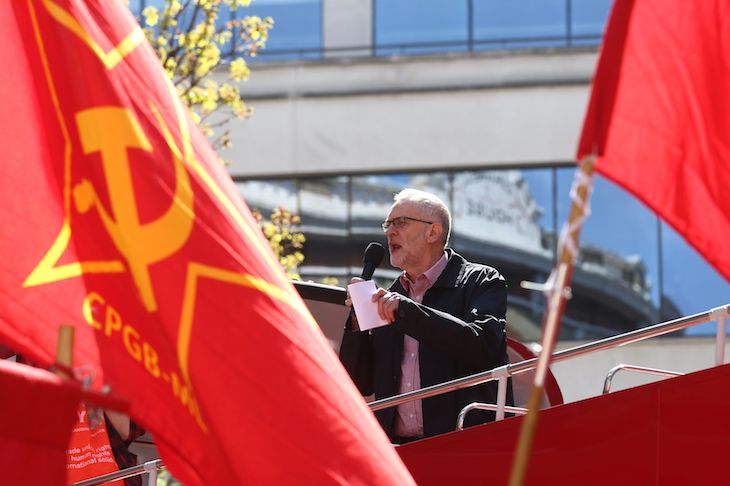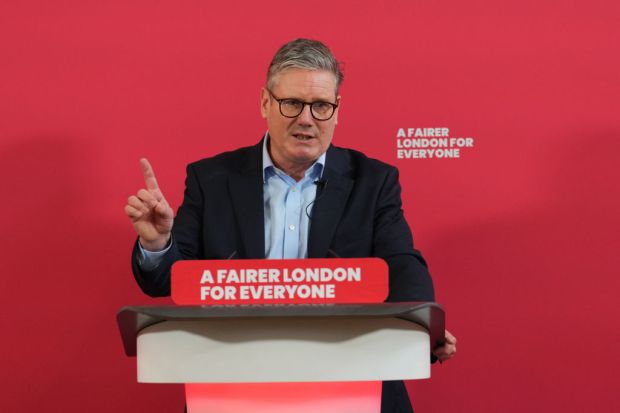As the well-worn cliché has it: if you’re not a socialist at 16, you don’t have a heart; if you’re still one at 60, you don’t have a head. The Labour party is on the brink of extinction. To survive, its members must use their heads.
At 16, I was a fanatical socialist, reading Lenin, wearing a Chairman Mao hat and marching against the Iraq war. At 19, I went to Cuba. I learned about the revolution and planted crops with farmers, working with Amnesty workers and middle-aged Trots. The year I left university, David Cameron was elected prime minister and, for the first time since I was in primary school, we had a Tory government.
In this new and troubling era, I joined the organisation I’d been told was run by warmongering Thatcherites: the Labour party. Having learned from Marxists what working-class people need, I began to knock on doors and ask them what they want. Over the course of a decade, I canvassed for the party in Newport, Nuneaton, Erdington, Northfield, Edgbaston, West Bromwich, Stoke and elsewhere. I stood as a borough councillor in North Warwickshire. I learned quickly that the hard-left assumption that working-class people are blank slates on which we can write our own story is arrogant and inaccurate.
Being proved wrong was painful, but I got the message. The things ordinary British people want are simple. A working NHS. Strong defence. Pride and belonging. Decent jobs. A fair shot at making their lives better for themselves. They don’t want to be patronised. They don’t want handouts. By the age of 30, I was a Labour moderate.
The Labour party was never a perfect organisation but it was a place in which compromise and inclusivity were valued. Activists were kind and welcoming. I found that so-called Blairites were principled people with nuanced worldviews who care as much about racism and poverty as I do. I studied facts, not dogma, and learned that the Labour government of my teens, from which I had gained in ways I hadn’t even noticed, had radically transformed the country in the course of my youth.
In 2015, the unthinkable happened. The party in which I had safely shed my old skin was overtaken by the fanaticism I’d escaped. The party imploded. The broad church crumbled. Factional warfare broke out. New members were euphoric, but I was bewildered. The doorstep became increasingly hostile as the distrust and scepticism of the Miliband years gave way to outright fury and contempt for Corbyn.
December’s election was devastating for Labour party members like me, as the party I know and love saw its heartlands ripped out and its share of seats fell to its lowest since 1935.
Still, the faction that tipped us into the abyss refuses to relent. Its leaders won’t accept defeat or even reality. Members unwilling to abandon Corbynism scapegoat every extraneous factor imaginable, from the tabloid press and Brexit to Dominic Cummings and first-past-the-post. Their obstinacy follows the logic of my three-year-old’s temper tantrums: they want to live in a world that doesn’t exist.
The Labour party was created to win elections. It should be as broad and encompassing as possible, working together across its union, from the Socialist Campaign group to Blue Labour, to win bold majorities and form progressive governments that change people’s lives. There is a place for those who believe in the ultra-radical redistribution of wealth and think that private enterprise and military intervention are wrong in all circumstances. There is democratic value in incorporating diverse opinion in our movement. But I’ve learned from the people who vote for us – or used to – that these will never be the views of mainstream Britain. Insisting that they should or will be, simply because that’s what you want, is the domain of small children.
Tony Blair once said:
‘The choice you have got is not between the Labour government of your dreams and the Labour government you have got, it is a choice between the Labour government you have got and a Tory government.’
Keir Starmer’s views are not perfectly aligned with mine but I’ll back him over the other Labour leadership candidates because competence and credibility are the things people in this country actually want.
Labour party members have a choice and it may be the most important political decision we ever make. Now, more than ever, we need to put collaboration and conciliation above ideology. Again, as the old cliché goes: there are no easy solutions. But the writing is on the wall.
If things don’t change, this party is as good as finished. Just as growing up is about compromise, so becoming a constructive member of a mainstream party requires concession. It’s not the place for always getting your own way. If we want to save our party and win again, it’s time to grow up.
Got something to add? Join the discussion and comment below.
Get 10 issues for just $10
Subscribe to The Spectator Australia today for the next 10 magazine issues, plus full online access, for just $10.




















Comments
Don't miss out
Join the conversation with other Spectator Australia readers. Subscribe to leave a comment.
SUBSCRIBEAlready a subscriber? Log in